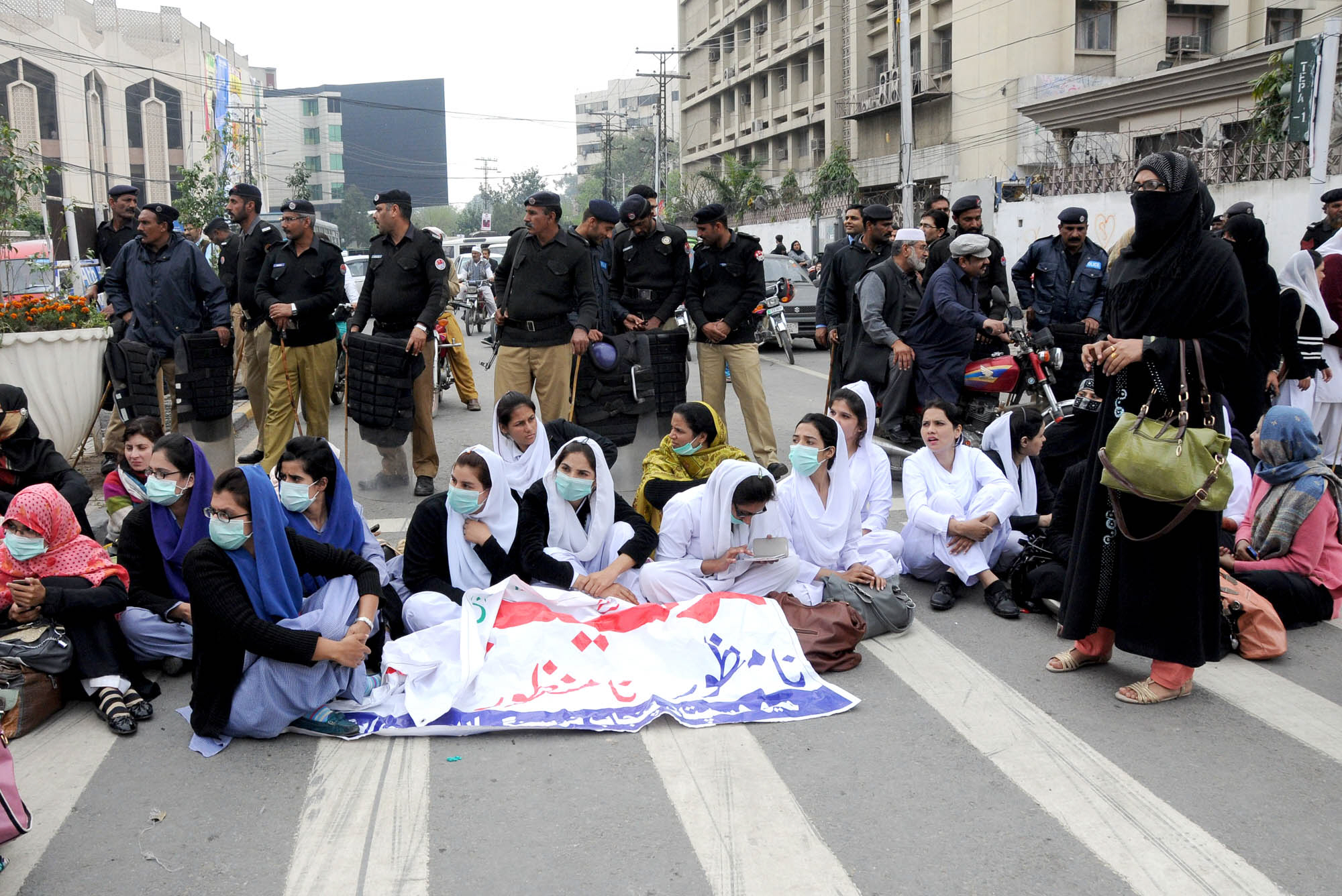
The new curriculum, which incorporates the latest treatment guidelines for pneumonia and diarrhoea, two preventable diseases that caused over 670,000 deaths in the country in 2015, was unveiled during a meeting of stakeholders and researchers involved in the Nigraan Plus study at Aga Khan University (AKU).
It includes directives on how LHSs can effectively support and supervise the work of LHWs to empower them to apply the latest knowledge and clinical skills for managment of pneumonia and diarrhoea at early stages.
"This revised LHS curriculum will now be used for training purposes and it is envisaged that it will ultimately help in better management of childhood diarrhoea and pneumonia," said Sindh Lady Health Worker Programme Director Dr Ghulam Hussain Sheikh.
"I express my sincere gratitude to the representatives of the Sindh Lady Health Worker's Programme for Family Planning and Primary Healthcare and the Nigraan Plus team at AKU for their voluntary participation to revise this curriculum. They have made great efforts in reviewing and translating it into Sindhi," Dr Sheikh said.
One of the components of Nigraan Plus was a knowledge assessment survey of 32 LHSs and 160 LHWs in the district, which found that most health workers lacked the minimum knowledge to manage cases of diarrhoea and pneumonia. The survey results also identified the need to improve the quality of mentorship provided by the LHSs to the LHWs.
"Most of the discussion about improvements in health systems revolves around LHWs. This means that LHSs are vastly underutilised," said Professor Fauziah Rabbani, the project's principal investigator. "An LHS who effectively mentors between 15 and 20 LHWs can have a massive multiplier effect since every LHW is responsible for 100 households," she added.
Researchers and health officials of the provincial government discussed a range of relevant findings from the ongoing Nigraan Plus project.
LHWs protest over outstanding dues
During the project's first year, community health workers surveyed over 4,000 mothers and caregivers in low income areas of Mirpurkhas. They found that fewer than one in three caregivers were aware of the symptoms of dehydration, a complication associated with diarrhoea, while less than four out of 10 households surveyed could detect breathing difficulties, a symptom of pneumonia.
A lack of awareness of these symptoms resulted in 70% of families visiting a private clinic for treatment even though these health issues could be easily treated at the doorstep by an LHW, members of the Nigraan Plus team noted.
Researchers also noted that parents often stopped giving food and drinks to a child suffering from loose motions. This widespread practice often exacerbated dehydration after which the patient had to be shifted to a hospital.
The researchers observed unnecessary delay in the treatment of dehydration. Most families went out to buy sachets of oral rehydration salts (ORS) even though they could make ORS at home with salt, sugar and water. This delay in providing ORS raised the likelihood of dehydration worsening to a dangerous level.
Similar misconceptions were noted in the case of pneumonia with the majority of caregivers viewing signs of respiratory infection as being a 'mere cough'. Only 12% of respondents provided appropriate antibiotics to their children.
The researchers recommended that the LHWs should have access to antibiotics, zinc supplements and ORS. This would help them provide essential treatment to children at homes instead of urging their caregivers to visit the hospital. The researchers recommended launching a mass awareness campaign on the importance of home-based rehydration to treat diarrhoea and the use of antibiotics to tackle pneumonia.

1731570357-0/elon-musk-(1)1731570357-0-165x106.webp)
-(1)1717678110-0/Kendrick-(1)-(1)1717678110-0-165x106.webp)





1732428532-0/BeFunk_§_]__-(43)1732428532-0.jpg)








COMMENTS
Comments are moderated and generally will be posted if they are on-topic and not abusive.
For more information, please see our Comments FAQ